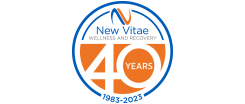This is the second portion of a three-part article by Sejeda Bhallo, MS, CADC, CPRP.
Protective Factors from Relapse
Now, let’s look at the ‘healthy immune system.’ There is merit in the analogy to Florida Orange; their website featured a variety of ways to care for our health. Indeed, physical health is important. So is emotional health. When one has a Substance Use Disorder, there are physical and emotional as well as psychological components that make up ‘the immune system.’
When we think of an ‘immune system,’ most think of ongoing protective factors that keep us healthy or help us bounce back if we happen to get sick. Referring to leading a sober life, there are protective factors that are necessary. Of course, anything can trigger a cold AND anything can trigger a relapse. The most common triggers are noted in the acronym H.A.L.T.: Hungry, Angry, Lonely and Tired. It’s also a reminder to pause, to halt, and turn one’s attention to these physical and emotional factors.
Feeling Hungry? For the physical aspect, getting enough sleep/rest, good nutrition and staying hydrated are vital. These are important in staying sober. Alcohol dehydrates, so drinking water is truly life sustaining. Alcohol on an empty stomach is not good for anyone. 85% of the metabolism happens in the liver which is why liver disease is common amongst alcoholics. 15% of metabolism happens in the stomach where the enzyme breaks down the alcohol before it can even get into your blood stream. Drinking anything on an empty stomach causes rapid gastric emptying, reducing the time the alcohol is exposed to alcohol dehydrogenase in your stomach lining. Rapid emptying means that the alcohol hits your bloodstream faster and in greater concentration, resulting is a state of inebriation. Eating is important as a protective factor.
Feeling Angry? Being able to vent, write in a journal, recognize one’s inner critic or vulnerable inner child as well as cognitive distortions help us to identify and properly express anger both at others and ourselves. Internalized and unexpressed anger can lead to depression, poor relationships, and physical ailments. Therapy and sober support system of peers as well as healthy coping skills are protective factors.
Feeling Lonely? Being around sober people as well as engagement in meaningful activities, like work and volunteering, ensures contentment. Having a positive sober support system creates positive outlooks. Having gratitude for blessings enhances optimism. These are protective factors.
Feeling Tired? Rest is vital for clear thinking and good coping. Functioning on little sleep is not ideal. We tend to be short-tempered and impatient. Exercise, yoga, relaxation techniques, including meditation are a part of protective factors.
For New Vitae Wellness and Recovery’s treatment options, contact us today.






